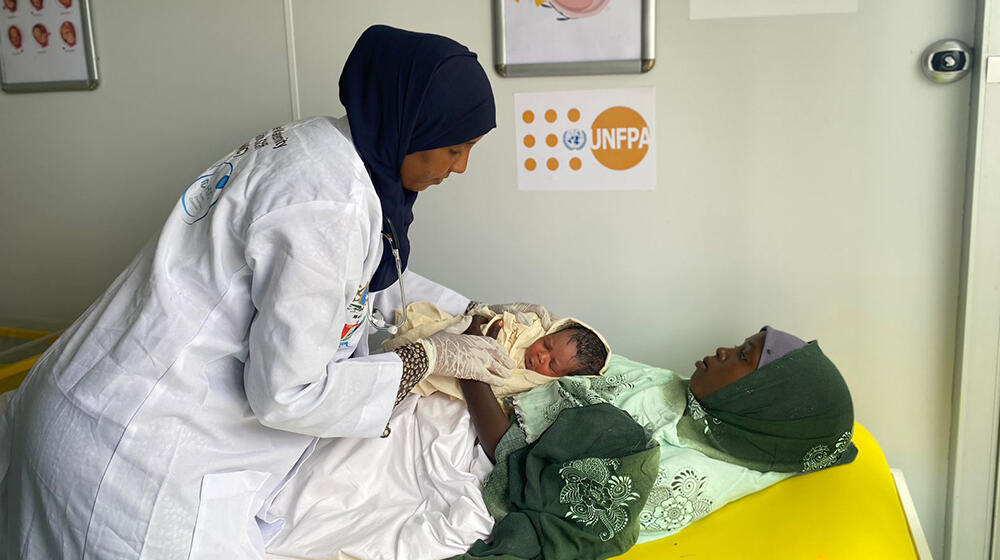Ubah Hassan's Journey Highlights the Critical Support Provided by UNFPA
In the face of Somalia's prolonged drought and conflict, 20-year-old Ubah Hassan was forced to flee her hometown of Baidoa in the Bay Region, seeking safety and a fresh start. Settling in the Guryasamo cluster of IDP settlement in the Daynile district of Banadir Region, a pregnant Ubah found herself among the vulnerable populations affected by the humanitarian crisis. With her immediate family and her baby, she left behind everything they had in Baidoa District.
Ubah and her husband, previously subsistence farmers, now worked as manual laborers to support themselves. As Ubah neared the end of her pregnancy, she learned about a mobile maternity clinic (MMC) established in the Guryasamo Cluster IDP settlement. Intrigued, Ubah decided to visit the clinic a few days before her due date.
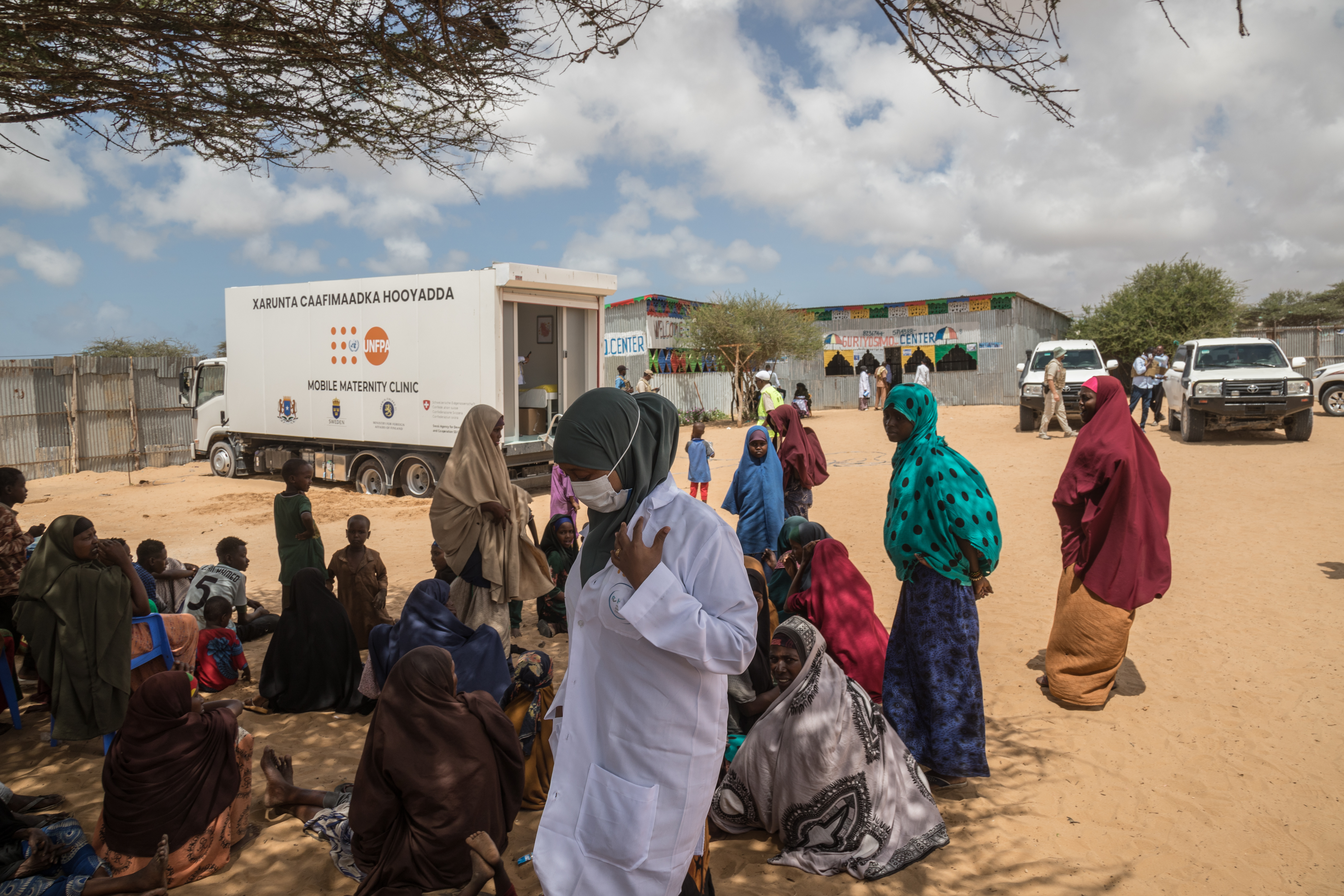
For Ubah, this visit marked a significant moment as she had never experienced a facility-based delivery or received care from a skilled birth attendant. Despite previous difficulties with home deliveries conducted by traditional birth attendants, Ubah felt a mix of excitement and reservation about the idea of giving birth at a healthcare facility.
Somalia has been plagued by climatic shocks, conflicts, and displacement, resulting in immense challenges for vulnerable communities. According to the Humanitarian Needs Overview (HNO) 2023 report, only 39 percent of pregnant displaced women have access to antenatal care and life-saving sexual and reproductive health services. Furthermore, 86 percent of these women face barriers in accessing healthcare.
In response to these challenges, UNFPA has emerged as a champion in promoting universal access to sexual and reproductive health services in Somalia. Through partnerships with organizations like Human Development Concern (HDC), UNFPA aims to prevent maternal and newborn morbidity and mortality by providing emergency obstetric and newborn care. However, Somalia still faces one of the highest maternal mortality rates in the world.
The MMC is one of the five Mobile Maternity Clinics (MMCs) obtained by UNFPA through generous funding from donors including Sweden, Switzerland, Finland, and Irish Aid.
The mobile maternity clinic service in Somalia represents a groundbreaking initiative to provide essential healthcare services to pregnant women and new mothers in hard-to-reach areas, particularly IDP settlements. It is the first of its kind in the country and has been designed to overcome the barriers of limited access to maternal healthcare facilities.
This innovative service brings medical professionals, equipment, and facilities directly to communities, reaching women who would otherwise face significant obstacles in accessing prenatal and postnatal care. The mobile maternity clinic is equipped with essential medical supplies and staffed by trained healthcare providers who offer comprehensive antenatal check-ups, safe deliveries, and postnatal care services.
By providing healthcare services directly to vulnerable communities, the mobile maternity clinic aims to reduce maternal and infant mortality rates, improve birth outcomes, and ensure that mothers and newborns receive the care they need during pregnancy and childbirth. This initiative represents a significant step forward in improving maternal healthcare and promoting the well-being of mothers and infants in Somalia.
Ubah's experience exemplifies the impact of the mobile maternity clinic. Prior to her delivery at the Daynile MMC, she had given birth at home with the support of unskilled traditional birth attendants, mainly due to the lack of accessibility to healthcare institutions and financial constraints. This decision had detrimental effects on her health, resulting in excessive bleeding and subsequent malnourishment, anemia, and nutrient deficiencies.
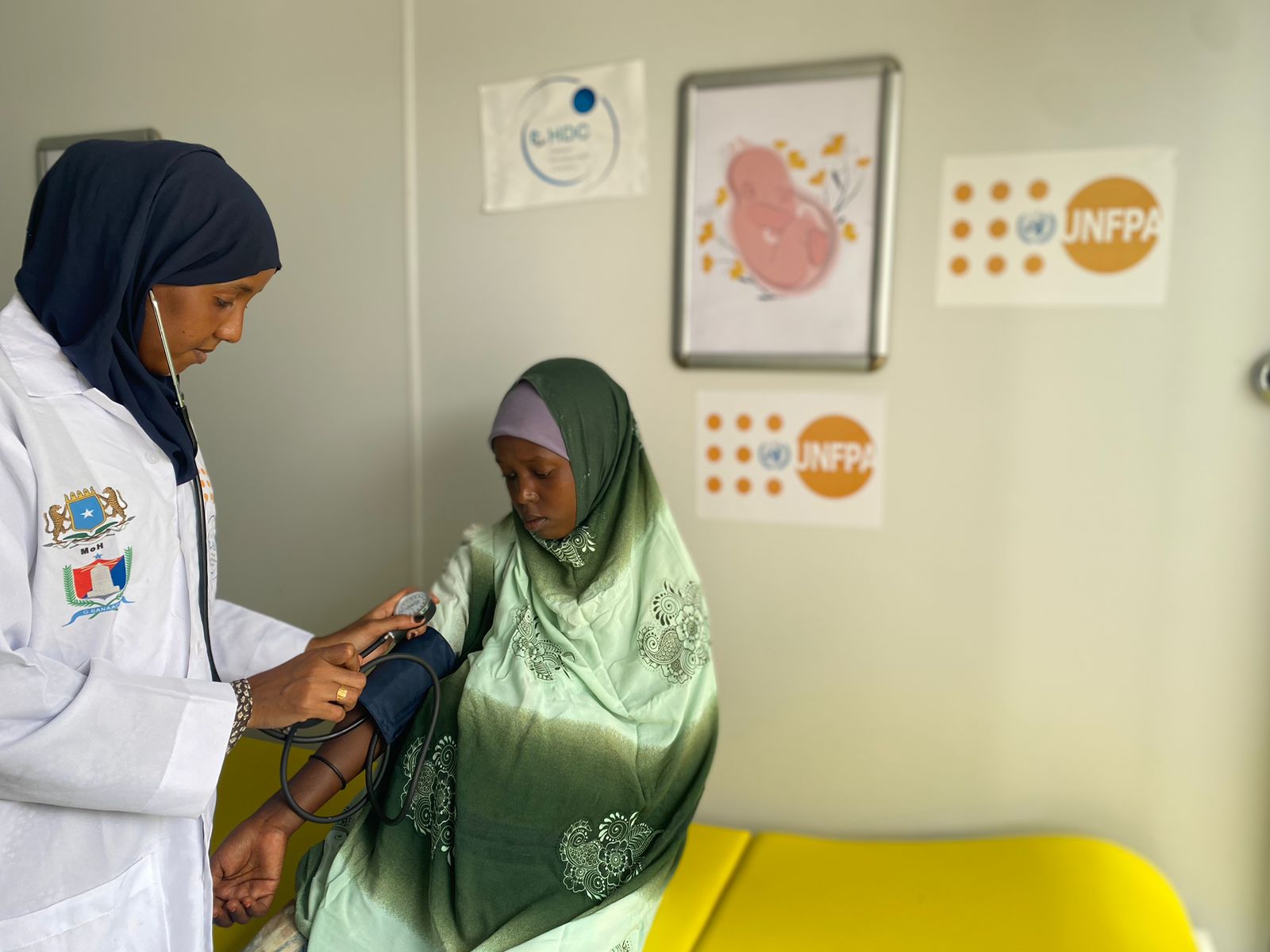
When Ubah arrived at the Daynile MMC, managed by HDC and funded by UNFPA, she was nine months pregnant. She received consultations, antenatal care services, and health education on the benefits of facility-based delivery and birth preparedness. Three weeks later, Ubah returned to the clinic in labor and successfully gave birth to a healthy baby boy with the assistance of a trained delivery attendant.
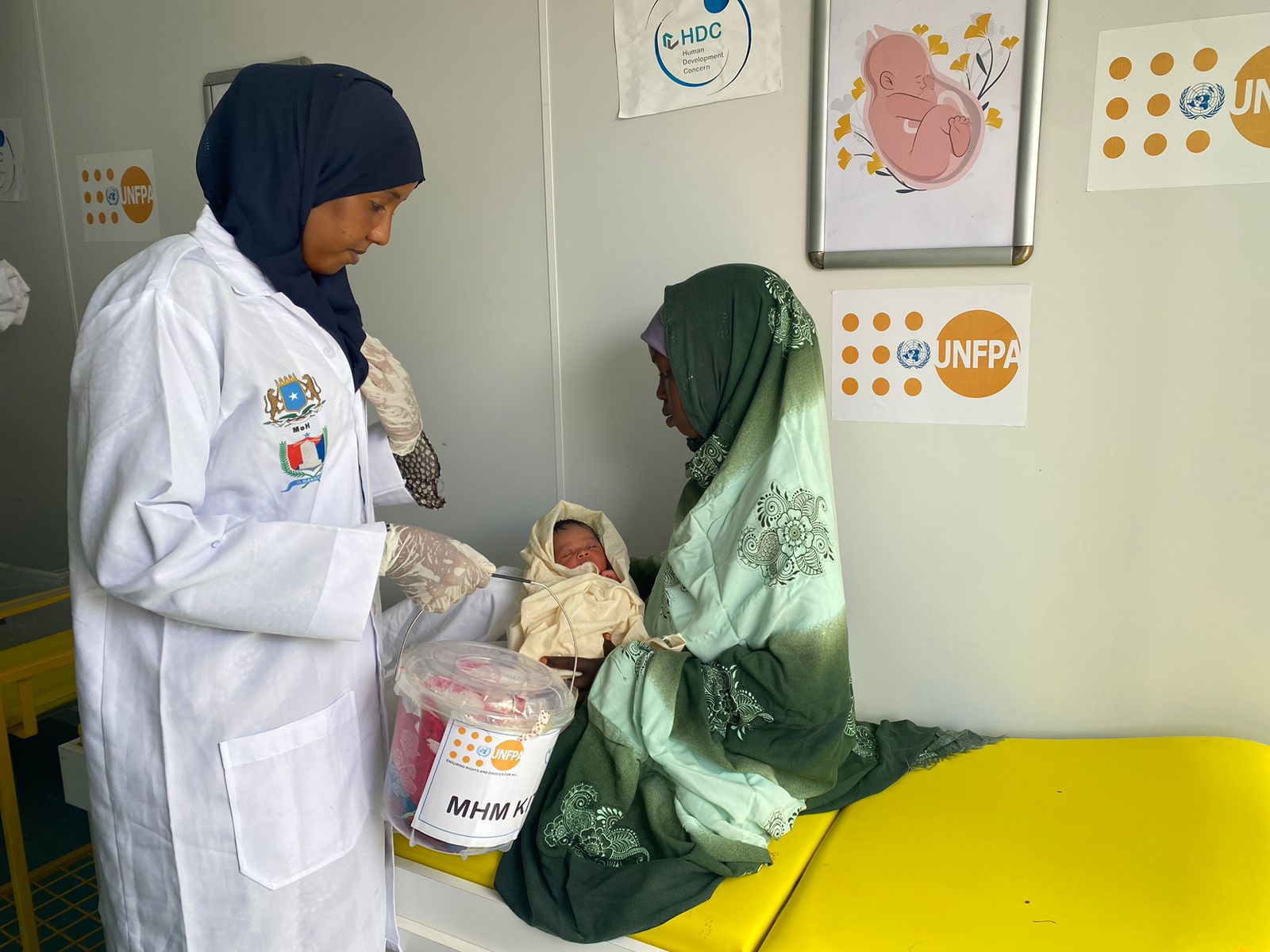
Ubah's husband expressed deep gratitude for the support received from the healthcare workers at the MMC, emphasizing their exceptional quality of treatment and care. Ubah, too, shared her appreciation, highlighting the friendliness and kindness of the midwives who provided constant support and encouragement throughout the process.
"I am so grateful for the mobile maternity clinic and the care I received during my delivery. The midwives were kind and supportive and made me feel safe. This experience has changed my perspective on facility-based deliveries, and I will tell all the women in my community about the clinic and encourage them to seek care there." said Ubah.
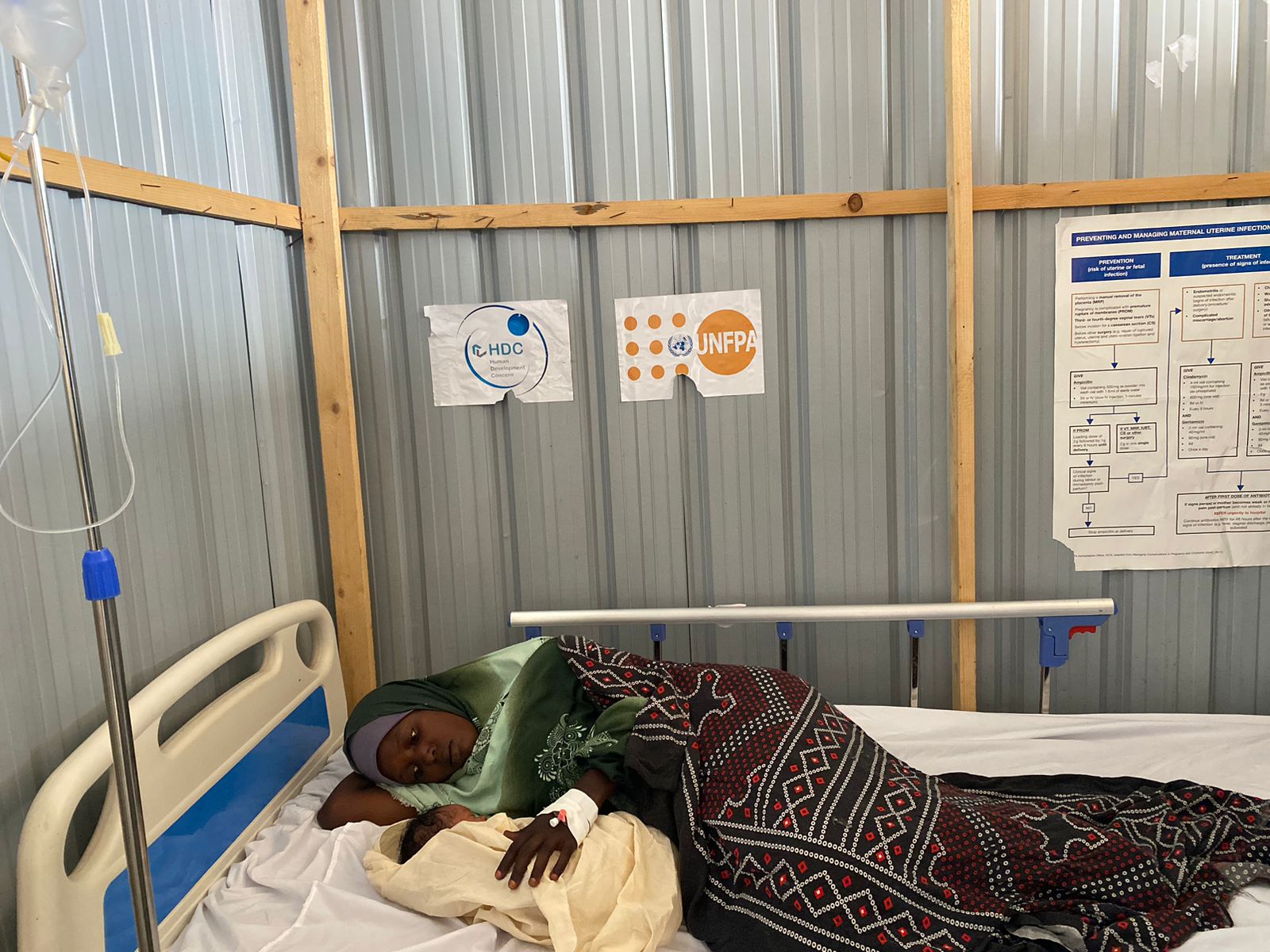
The MMC not only facilitated safe deliveries but also activated postnatal care services for Ubah for the first time. She received vital medications, health education on breastfeeding and nutrition, essential immunizations for the baby, and birth spacing planning through family planning services available at the facility. A follow-up postnatal clinic was also activated to monitor their well-being.
Ubah's positive experience at the MMC has left a lasting impact on her and her family. She expressed her gratitude to HDC and UNFPA for making her first encounter with facility-based delivery a supportive and empowering experience. Determined to spread the word, she vowed to inform her peers and neighbors, who are also newly displaced, about the MMC and encourage them to seek care at the facility.
Through UNFPA's support and the establishment of the mobile maternity clinic in Somalia's IDP settlements, the lives of countless women like Ubah are being saved. This innovative approach to maternal healthcare is bridging the gap in access to essential services and providing a lifeline for vulnerable communities. With continued efforts and investment in initiatives like the mobile maternity clinic, UNFPA and its partners are working towards a future where every woman in Somalia can give birth safely and receive the care she deserves.

